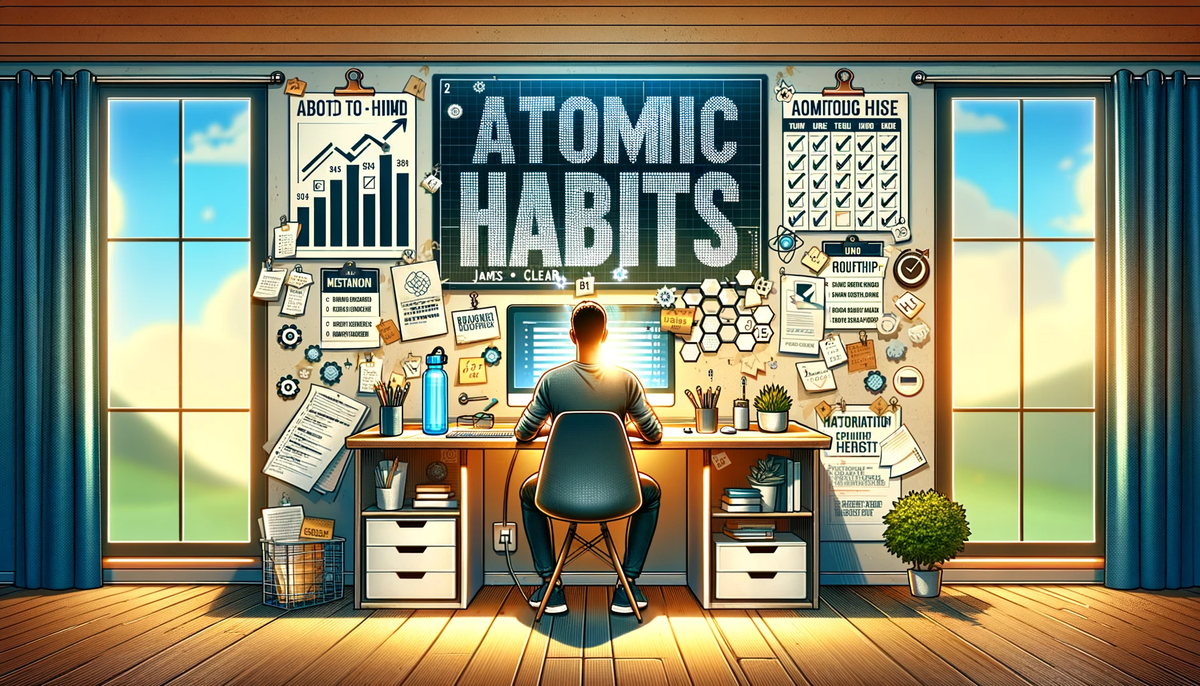Atomic Habits

I've recently realized how much habits matter. In the past, I never felt much need for them, but then, in the past, my life provided more structure that took the place of it: I didn't need a separate habit of getting up at 7 when I needed to be in class by 7:30 anyway.
More recently though, I've had the great fortune to basically set my own schedule completely. I've learned a lot during this time period, but there's been very little structure, and thus little progress in certain areas. Feeling the need for that to change, I revisited Atomic Habits by James Clear. I'm glad I re-read it, because I got more out of it the second time around.
Here's the cheat sheet (from Atomic Habits Resources).

The basics are pretty simple. The book centers around the four stages of a habit: cue, craving, response, and reward, and four corresponding principles for making good habits or breaking bad habits.
If you want a summary, you can watch this video or ask your favorite AI about it. Instead of a summary, here are my key takeaways.
The framework is the key. The four "laws" are pretty common sense once you have that. E.g.: How should I handle a cue for a habit I want to encourage? Make it BIG, bold, and generally obvious.
Habits are a form of learning; they allow for the brain to do what it naturally does. Alfred North Whitehead said "Civilization advances by extending the number of important operations which we can perform without thinking of them." We advance our own capabilities similarly. When learning to drive a car, we start with too many operations to keep track of at once, but over time we learn to manage it. This process is simply making habits of much of the process, so they're not something we have to consciously decide to do each time.
You can use identity to your advantage. The one major good habit I have is that I work out regularly. And by regularly, I mean what most people would say is "religiously." It's also the easiest habit for me to keep going, to the extent I don't think of it as a habit. It's just something I do.
There's a difference between movement and action. "Motion makes you feel like you’re getting things done. But really, you’re just preparing to get something done." Coming up with a list of things to write about is motion. I've got plenty of those. Actually writing a post for the website is action. I have noticeably fewer of those. Motion is dangerous, because it can actually be helping me prepare, or it can just be a way of procrastinating.
HABITS NEED REPETITION. Seems obvious, right? But that's the biggest takeaway from my second reading. I've heard the quote "perfect is the enemy of the good" at least a hundred times by now, but I still have trouble implementing it. I often feel like I can't start something yet, because I haven't figured out the right way to do it. While valid to an extent, the best way to figure out how to do things the right way is to start doing them any way. This is an exceedingly difficult thing to get through my head, but it's slowly worming its way in there.
This is a solid, actionable book, and while I'm coming that reading more books about having a good system can be more motion than action, I'd recommend this and Getting Things Done.
Now, the important thing is to put it into practice. Specifically, I'll use the inversion of the 4th law and make it painful. I'm going to finish 2023 strong, and write at least one post a week. Today is 12 November, so if you do not see a new post by 19 November, I'll give $100 to the charity of choice of whoever holds me accountable. Same with 26 November, and each Sunday in December.
So if you've read this far, congrats! You now have the chance to get money for your charity, and at the very least you're helping me achieve my goals.